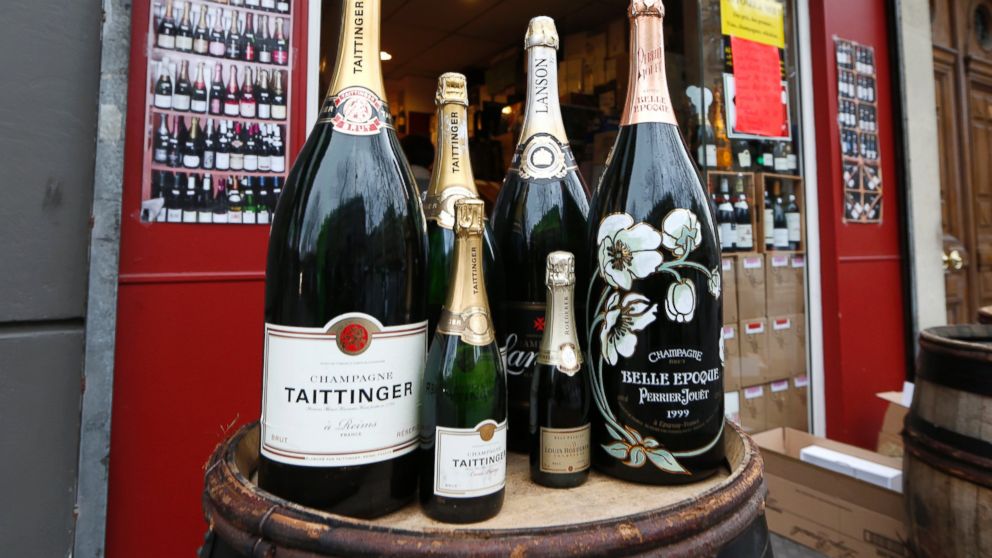Champagne Sales Expected to Fall Flat for Second Year in a Row
Many customers can't tell difference between Prosecco and champagne. Can you?

Dec. 25, 2013 — -- Can you taste the difference between prosecco and champagne? Apparently many people can't and are less willing nowadays to pay a premium for the French bubbly. Global sales for champagne were down for the second year in a row as cheaper substitutes grow in popularity.
Sales volume will drop between 3 percent and 4 percent this year for the carbonated wine produced from grapes in the Champagne region of France, after a 4.4 percent fall last year, according to industry estimates by Reuters.
Though exports to new markets have been robust, there are a number of things taking the fizz out of champagne sales.
First, sales were down more than 6 percent by October in France, which comprises about 51 percent of champagne sales volume, Reuters said. The French economy is expected to have stagnant growth this year.
Read More: Eurozone Survey Points to Pick-up Despite France
French luxury conglomerate LVMH is the biggest industry player with brands Moet & Chandon and Veuve Clicquot overseeing Dom Perignon, Ruinart and Krug, which can start at $40 a bottle. Lanson BCC, the second-largest player, reported lower sales volume for the first half of the year due to "major economic slowdown in France and across Europe." Official 2013 champagne sales figures will be released in February.
Slow growth in Britain, the second-largest champagne market, is also contributing to champagne's rut. Celebrants are apparently not popping enough bottles in the U.S., the next largest export market.
Read More: Recipes for Cheerful Christmas Cocktails
The bright geographic spots for the champagne industry are in Japan and Australia. Though the Chinese market doubled last year, sales are focused in Beijing and Shanghai, Reuters reports.
Another challenge is competition from cheaper sparkling wines such as Italian Prosecco or Asti, German Sekt, and Spanish Cava, which are sometimes sold for a third of the price. If wedding guests and holiday celebrants don't see the bottles in which their bubbly is poured, chances are they won't be able to tell the difference, say some lovers.
Read More: Oenophile Alert: Wine Shortage Looms




